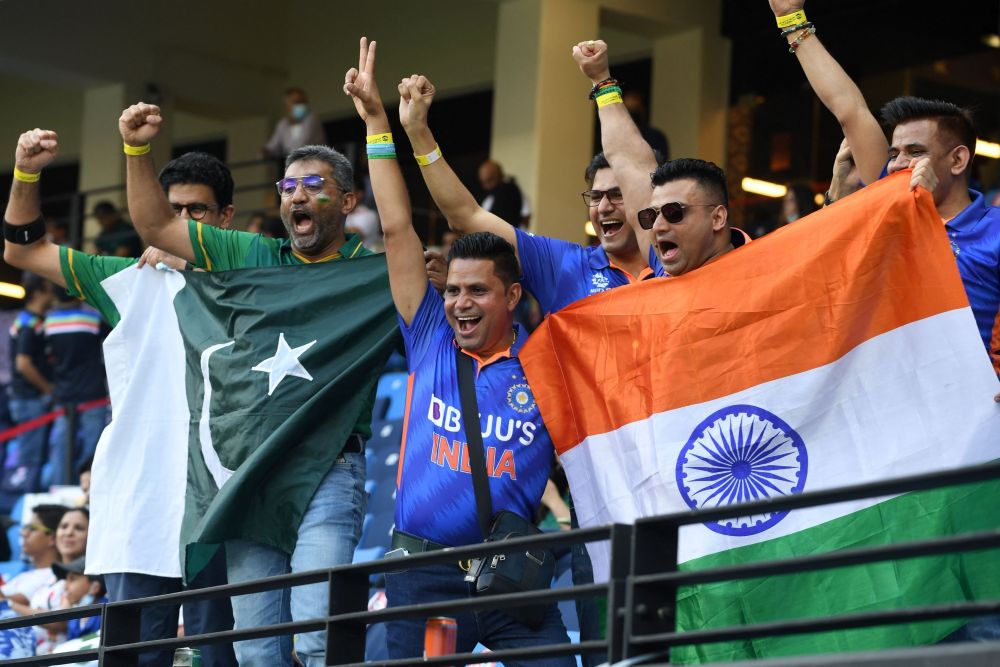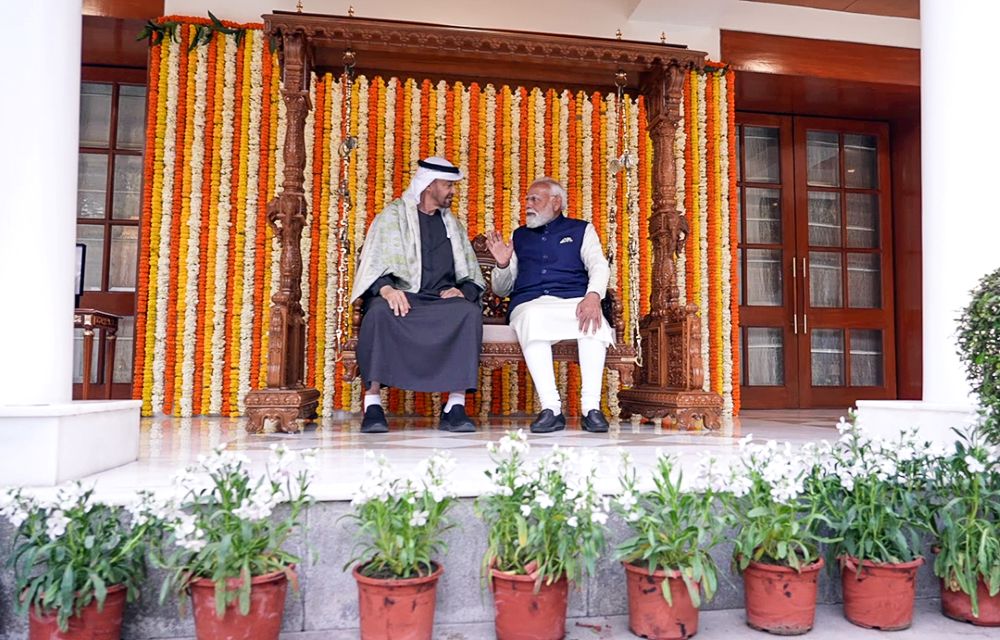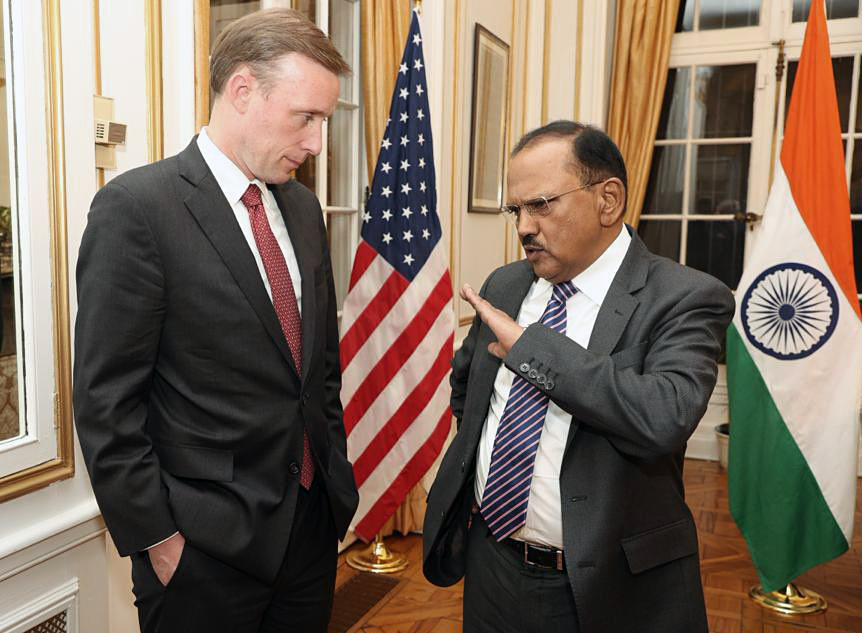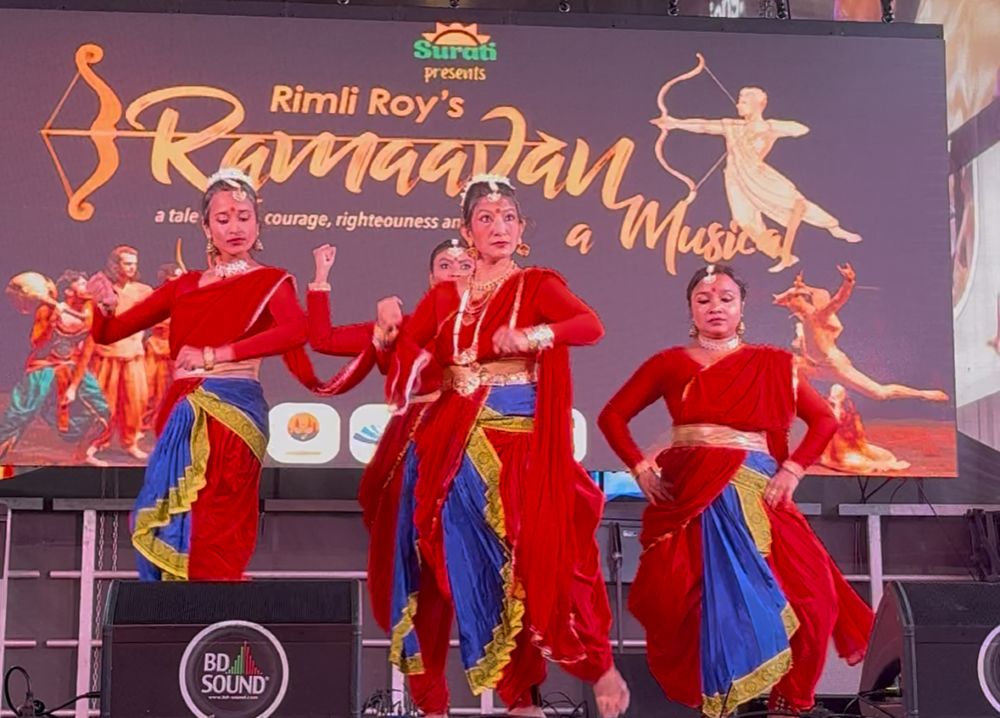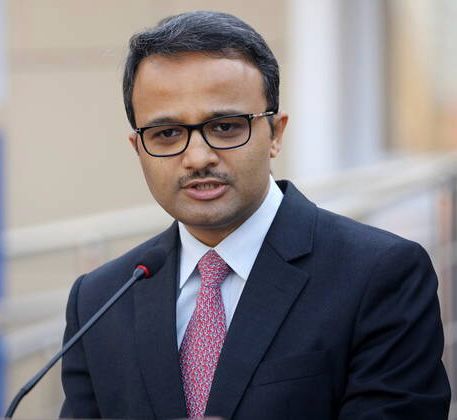As the Supreme Court upholds the abrogation of Article 370 of the Constitution, the government of PM Narendra Modi begins the process reservation and reorganization in the state. A new, positive chapter is about to begin in Jammu & Kashmir
Our Bureau
New Delhi/Srinagar
The controversy has been put to rest forever. And now there is no dispute over the status of Jammu & Kashmir in the Indian union. The status of Ladakh too has been settled.
In a landmark judgment on Monday, a five-judge Constitution bench of the Supreme Court unanimously upheld the validity of the Union government’s 2019 decision to abrogate Article 370 of the Constitution, which conferred the special status of Jammu and Kashmir, while pointing out that Article 370 was a “temporary provision.”
The bench comprising Chief Justice of India DY Chandrachud, Justices Sanjay Kishan Kaul, Sanjiv Khanna, BR Gavai, and Surya Kant said, “It can be garnered from the historical context for the inclusion of Article 370 and the placement of Article 370 in Part XXI of the Constitution that it is a temporary provision.”
The apex court said Article 370 was enacted due to wartime conditions in the State and was meant to serve a transitional purpose. “We have held that a textual reading of Article 370 also indicates that it is a temporary provision. For this purpose, we have referred to the placement of the provision in Part XXI of the Constitution which deals with temporary and transitional provisions, the marginal note of the provision which states “temporary provisions with respect to the State of Jammu and Kashmir”, and a reading of Articles 370 and 1 by which the State became an integral part of India upon the adoption of the Constitution,” the top court said.
The petitioners, challenging the abrogation of Article 370, had said that Article 370 was no longer a “temporary provision” and it had assumed permanence post the dissolution of the Constituent Assembly of Jammu and Kashmir. The top court held that the State of Jammu and Kashmir did not retain an element of sovereignty when it joined the Union of India.
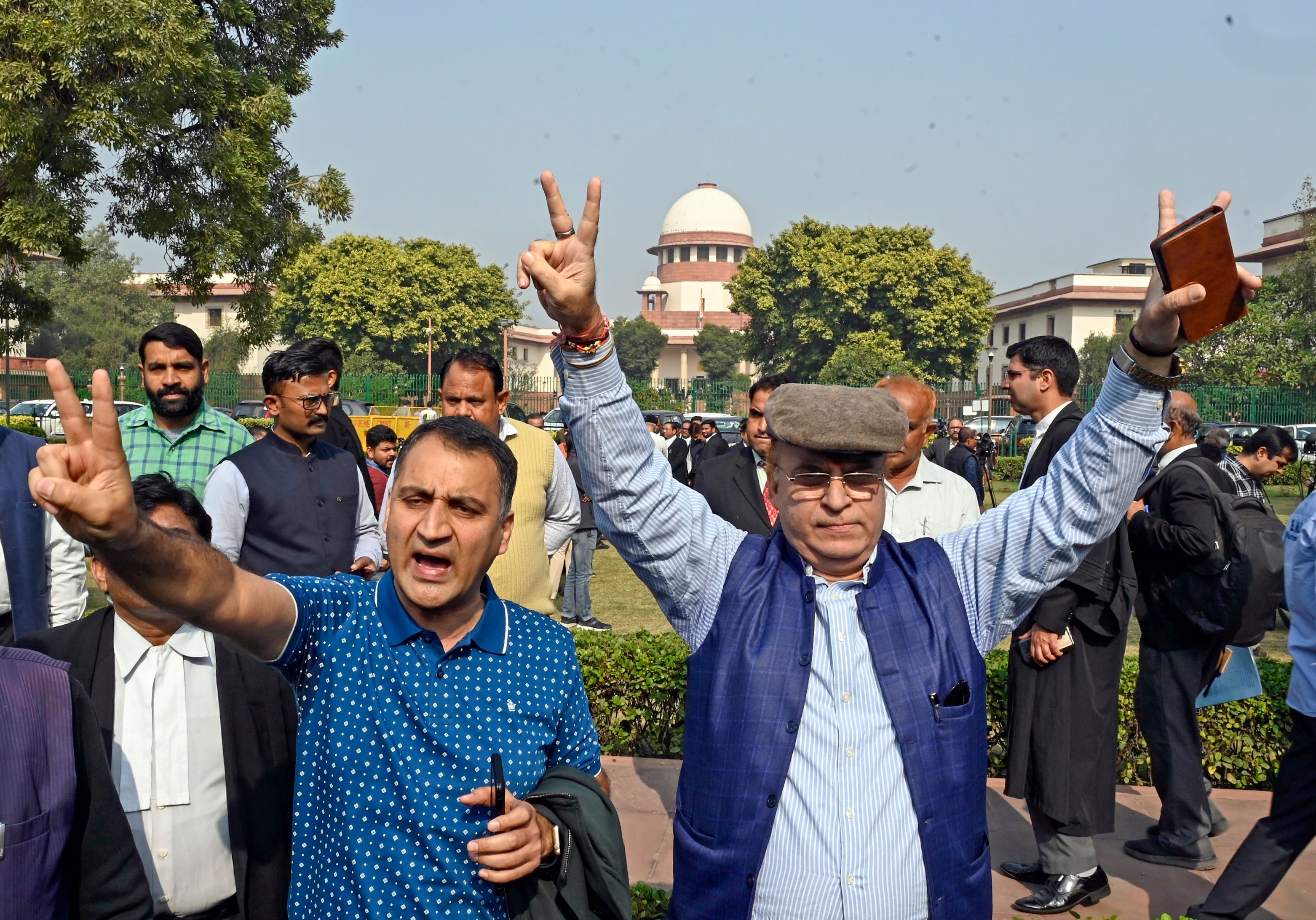
The apex court said that although Maharaja Hari Singh, the erstwhile ruler of the princely state, issued a proclamation that he would retain his sovereignty, his successor Karan Singh issued another proclamation that the Indian Constitution would prevail over all other laws in the state. It added, “The Proclamation reflects the full and final surrender of sovereignty by Jammu and Kashmir, through its sovereign ruler, to India–to her people who are sovereign.”
In another major development on Monday, the Rajya Sabha unanimously passed the Jammu and Kashmir Reservation (Amendment) Bill, 2023, and Jammu and Kashmir Reorganization (Amendment) Bill, 2023 with a voice vote, amending key laws in the Union Territory aimed at providing “rights to those who faced injustice”. Both the Bills were passed last week by the Lok Sabha.
The Jammu and Kashmir Reservation (Amendment) Bill, 2023 is aimed at amending the Jammu and Kashmir Reservation Act, 2004, which provides reservation in jobs and admission to professional institutions to members of Scheduled Castes (SCs), Scheduled Tribes (STs), and other socially and educationally backward classes. The Jammu and Kashmir Reorganization (Amendment) Bill, 2023 seeks to amend the 2019 Act and provide representation in the Legislative Assembly to the Kashmiri Migrants and displaced persons from the PoK.
It also proposes to nominate two members from the Kashmiri migrant community and one person representing the displaced persons from Pakistan-occupied Kashmir (PoK) to the Legislative Assembly once statehood is restored to Jammu and Kashmir. The amendment Bill also proposes to increase the number of seats in the legislative assembly to 90 from 83.
Earlier, reacting to the Supreme Court’s decision to uphold the abrogation of Article 370, Solicitor General Tushar Mehta credited the development to the “iron will” of Prime Minister Narendra Modi and “brilliant strategy” of Home Minister Amit Shah. “It is only the iron will of our Prime Minister Narendra Modiji and resolute decisiveness and brilliant strategy of our Home Minister Amit Shahji that made this historical decision possible. The nation will ever remain indebted to them,” said Tushar Mehta in a statement.
Hailing the landmark ruling, upholding the revocation of Article 370 from Jammu and Kashmir, Prime Minister Narendra Modi on Tuesday said the verdict strengthened the spirit of ‘Ek Bharat, Shreshtha Bharat’, adding that the Articles 370 and 35A deprived people in the erstwhile state of rights enjoyed by fellow citizens across the country.
PM Modi stated further that the region was subjected to the “worst form of violence and instability” over the last seven decades. “Unfortunately, due to centuries of colonization, most notably economic and mental subjugation, we became a confused society of sorts. Rather than taking a clear position on very basic things, we allowed duality, leading to confusion. Sadly, Jammu and Kashmir became a big victim of such a mindset,” PM Modi wrote.
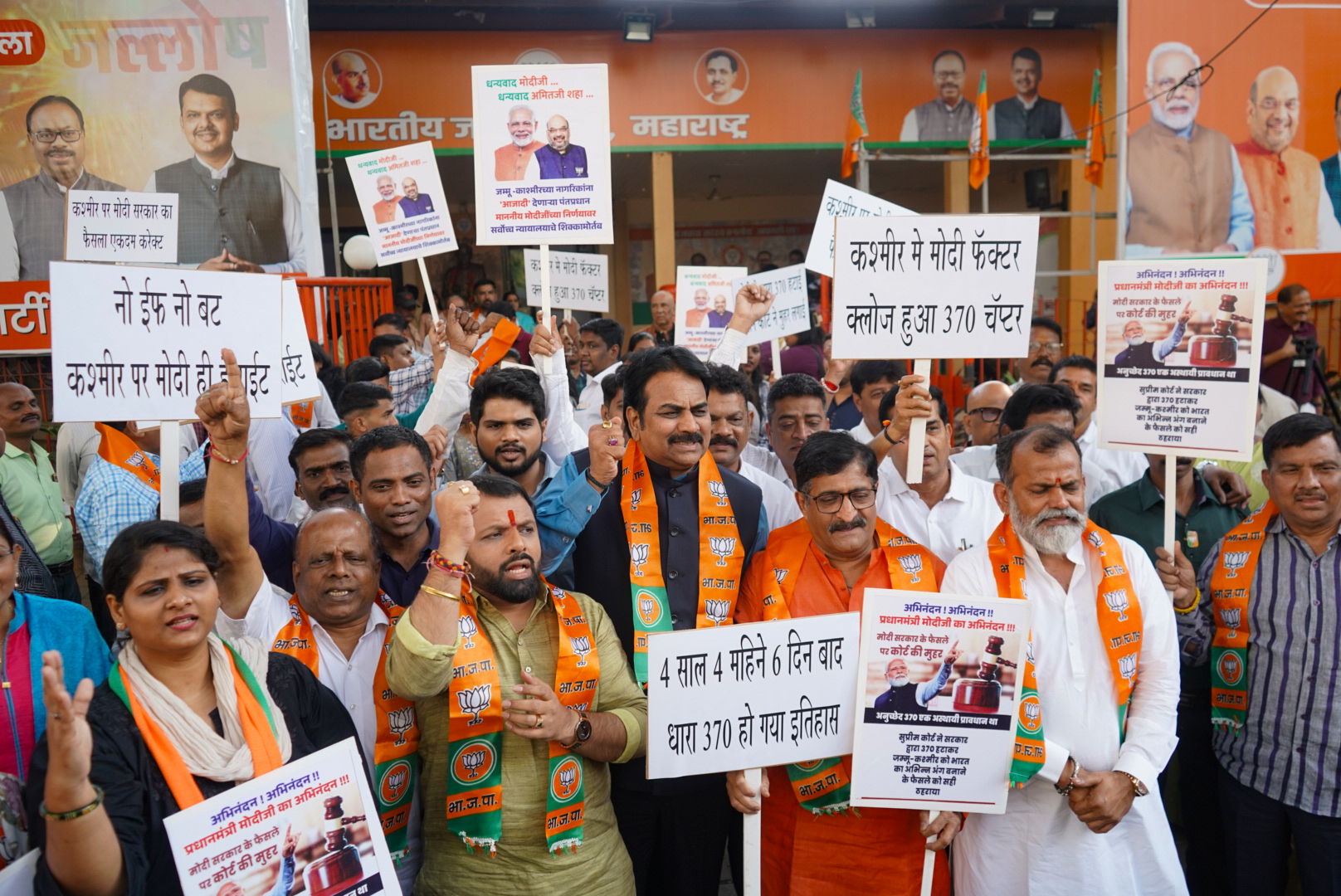
Union Home Minister Amit Shah on Monday said that Article 370, which was abrogated by the Prime Minister Narendra Modi-led government in 2019, gave impetus to separatism in Jammu and Kashmir which led to killings of several people. “We should understand that 42,000 people were killed. Why were they killed? It is not a question of Hindus and Muslims. There are more Muslims in Gujarat (than in Kashmir), and there are more Muslims in Uttar Pradesh, Bihar and Assam states. Why did separatism not happen there? There is no question of boundary either. Rajasthan and Gujarat share their boundaries with Pakistan too. Why it happened (only in J-K). (It was) because Article 370 gave impetus to separatism which led to terrorism,” he said, while replying to the debate in the Rajya Sabha on the two bills– The Jammu and Kashmir Reorganization (Amendment) Bill 2023 and The Jammu and Kashmir Reservation (Amendment) Bill 2023– which were passed by the Lok Sabha on December 7.
Welcoming the Supreme Court judgement on the revocation of Article 370 from Jammu and Kashmir, the international working president of Vishwa Hindu Parishad (VHP) and senior advocate, Alok Kumar, said the landmark ruling would go down as a tribute to saffron ideologue and the founder of the Bharatiya Jana Sangh, Shyama Prasad Mukherjee. Kumar said in a statement that with the special constitutional privileges for the erstwhile state under Article 370 now consigned to history, the Centre should now shift focus to liberating Pakistan-occupied-Kashmir (PoK).
“Now the only unfinished agenda in Jammu and Kashmir is the liberation of Pak-Occupied-Kashmir from the clutches of Pakistan. We are confident that a strong India and a determined Government will be able to free the POK soon,” the VHP leader said.
Earlier, on Tuesday, Rahul attacked the union home minister over his critique of Jawaharlal Nehru during a debate in the Rajya Sabha on two draft legislations concerning Jammu and Kashmir, saying that he was “unaware of history” and “has a habit of rewriting it”. Speaking to reporters outside the Parliament, Rahul accused the BJP-led government at the Centre of trying to distract attention from ‘real issues’.
Meanwhile, rejecting the statement issued by the Organization of Islamic Cooperation (OIC) over the Supreme Court judgment, upholding the Centre’s decision to revoke Article 370 from the erstwhile state of Jammu and Kashmir, Ministry of External Affairs spokesperson Arindam Bagchi on Wednesday said it was “ill-informed and ill-intended”.
An official release quoting the MEA spokesperson on Wednesday stated, “India rejects the statement issued by the General Secretariat of the Organization of Islamic Cooperation (OIC) on a judgement of the Indian Supreme Court. It is both ill-informed and ill-intended.”
The response by the MEA spokesperson came a day after the OIC, on Tuesday, frowned on the apex court’s endorsement of the revocation of Article 370, stating that it “reiterates its call to reverse all illegal and unilateral measures taken since 5 August 2019 aimed at changing the internationally recognized disputed status of the territory”.
Though the decision of the Supreme Court has been welcomed by the whole country, National Conference chief and former Chief Minister of Jammu and Kashmir Farooq Abdullah, when questioned about the Supreme Court’s verdict on the abrogation of Article 370, said that Jammu and Kashmir should “go to hell.”
“Let Jammu and Kashmir go to hell…They betrayed people. They want to win people’s hearts. How’d you win that if you’d do such things to push people farther away?” Abdullah said on Tuesday while talking to reporters.
Abdullah’s opinion may not be in sync with the country at large, but there is no denying the fact that the issue of Article 370 is now history.

















